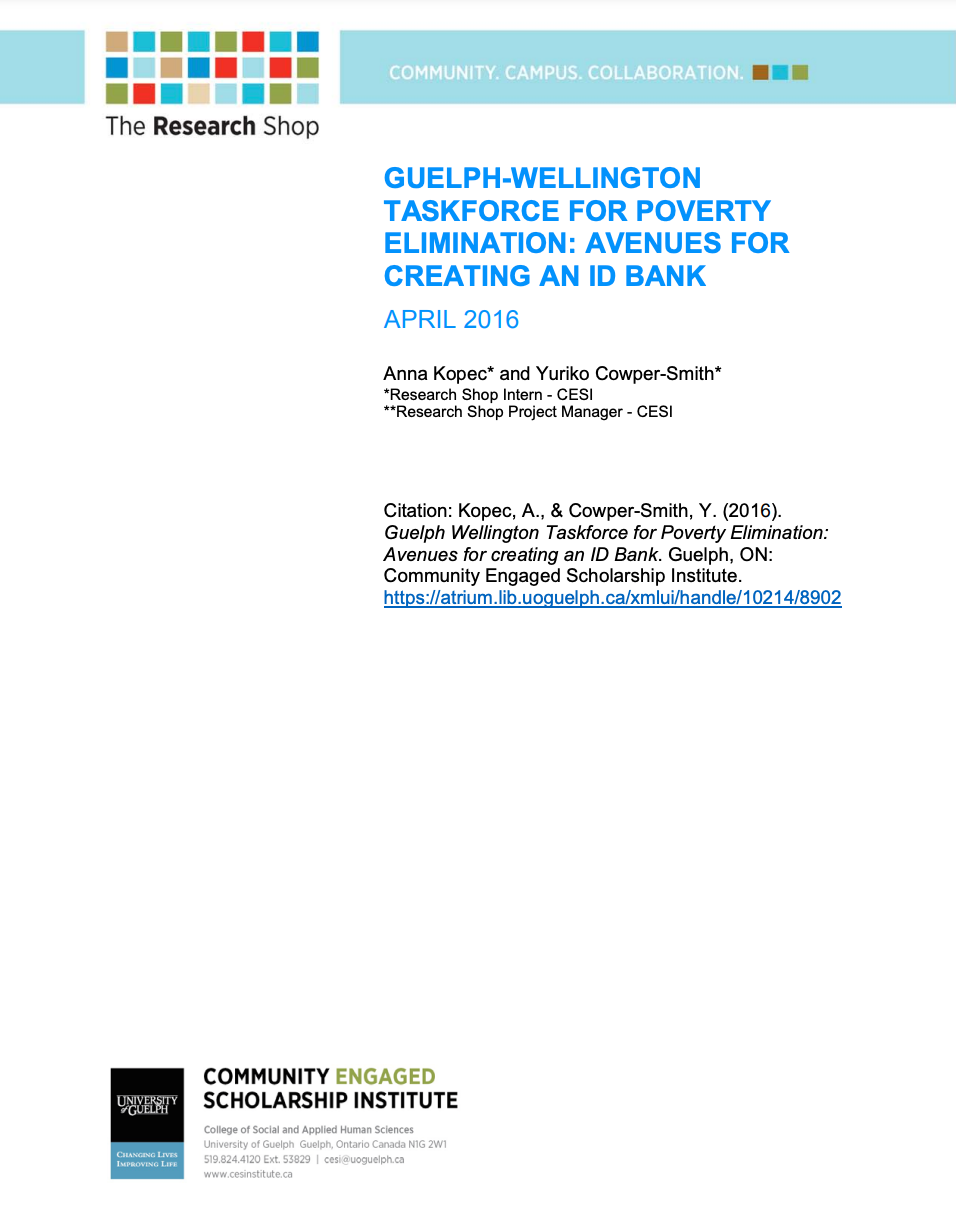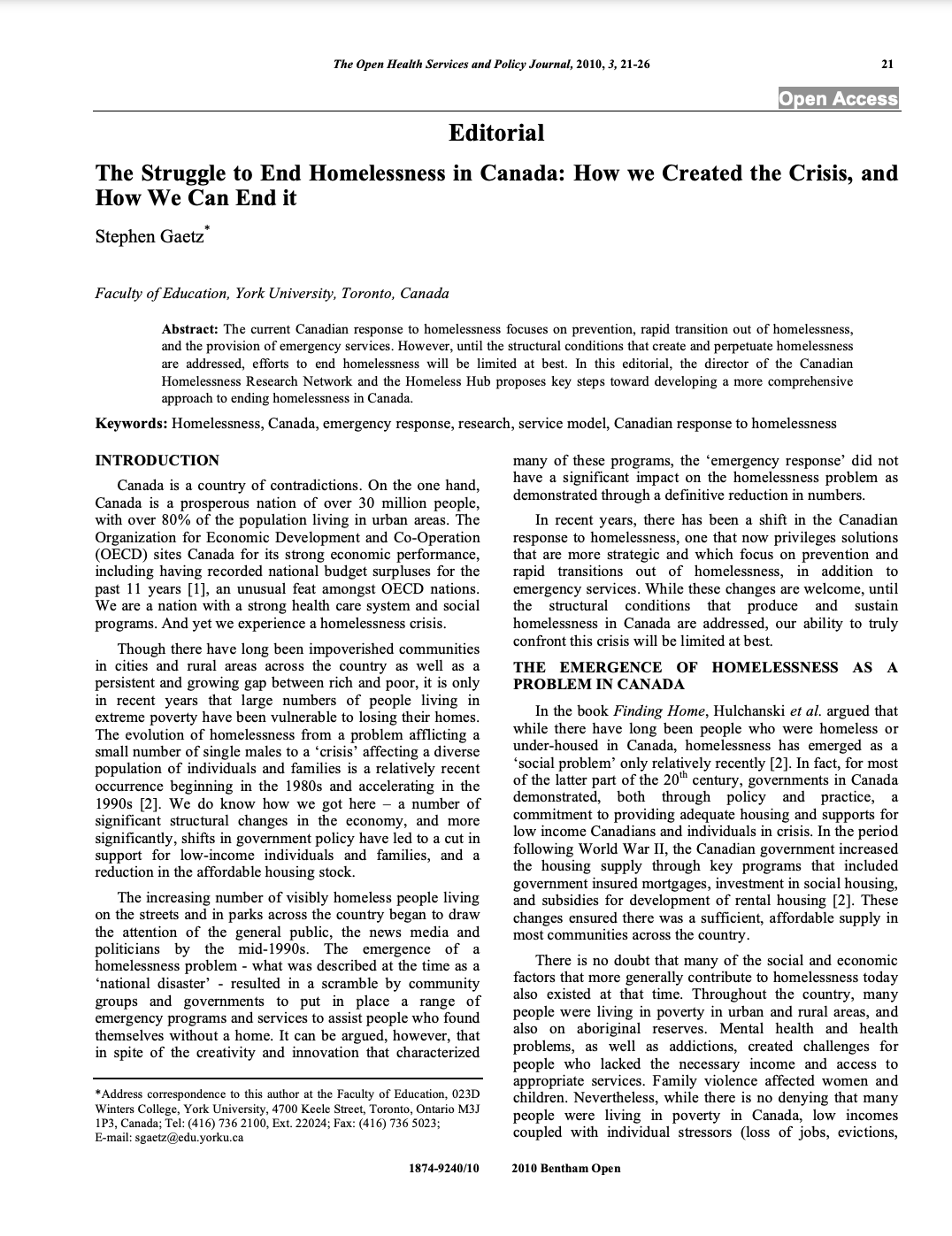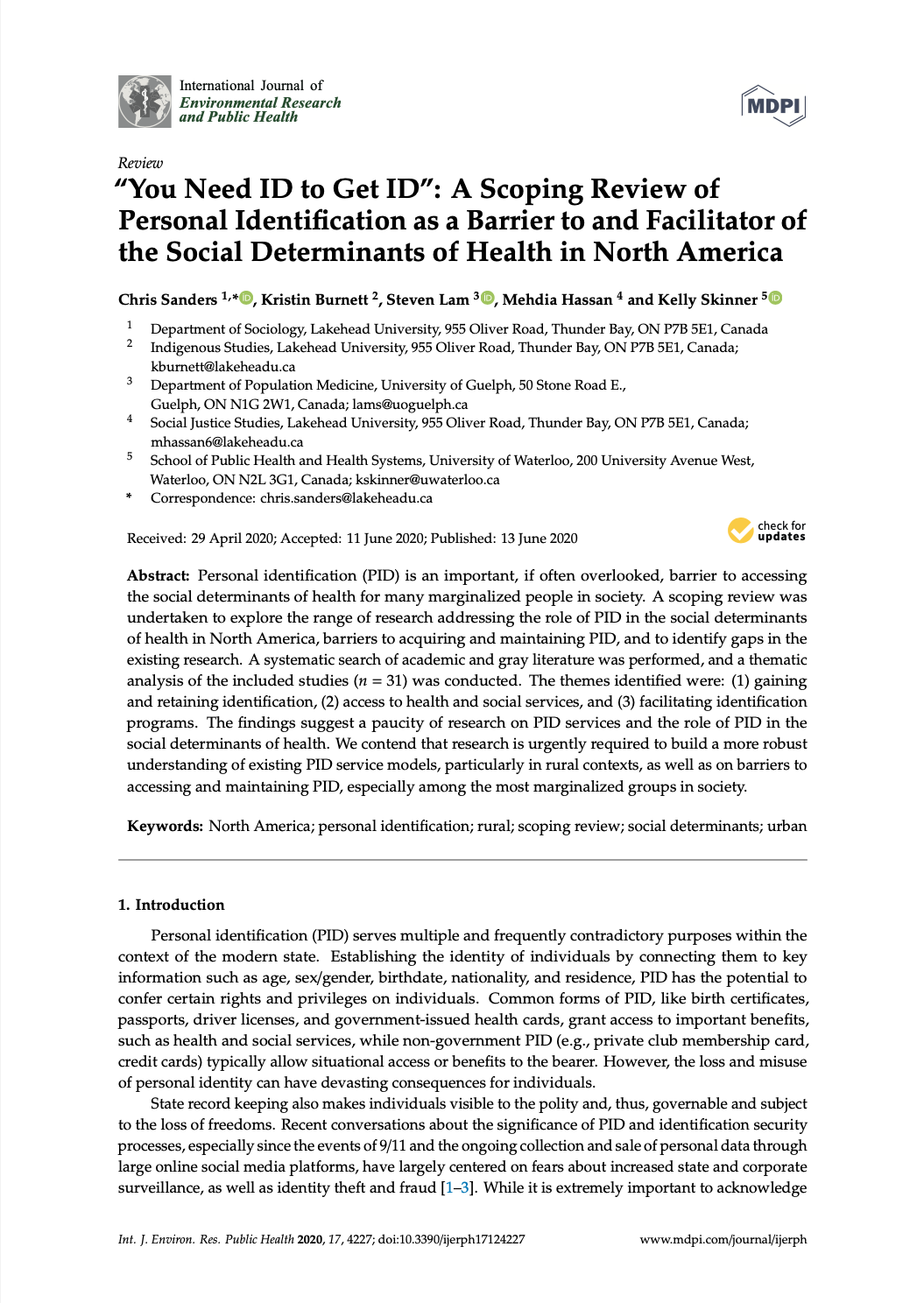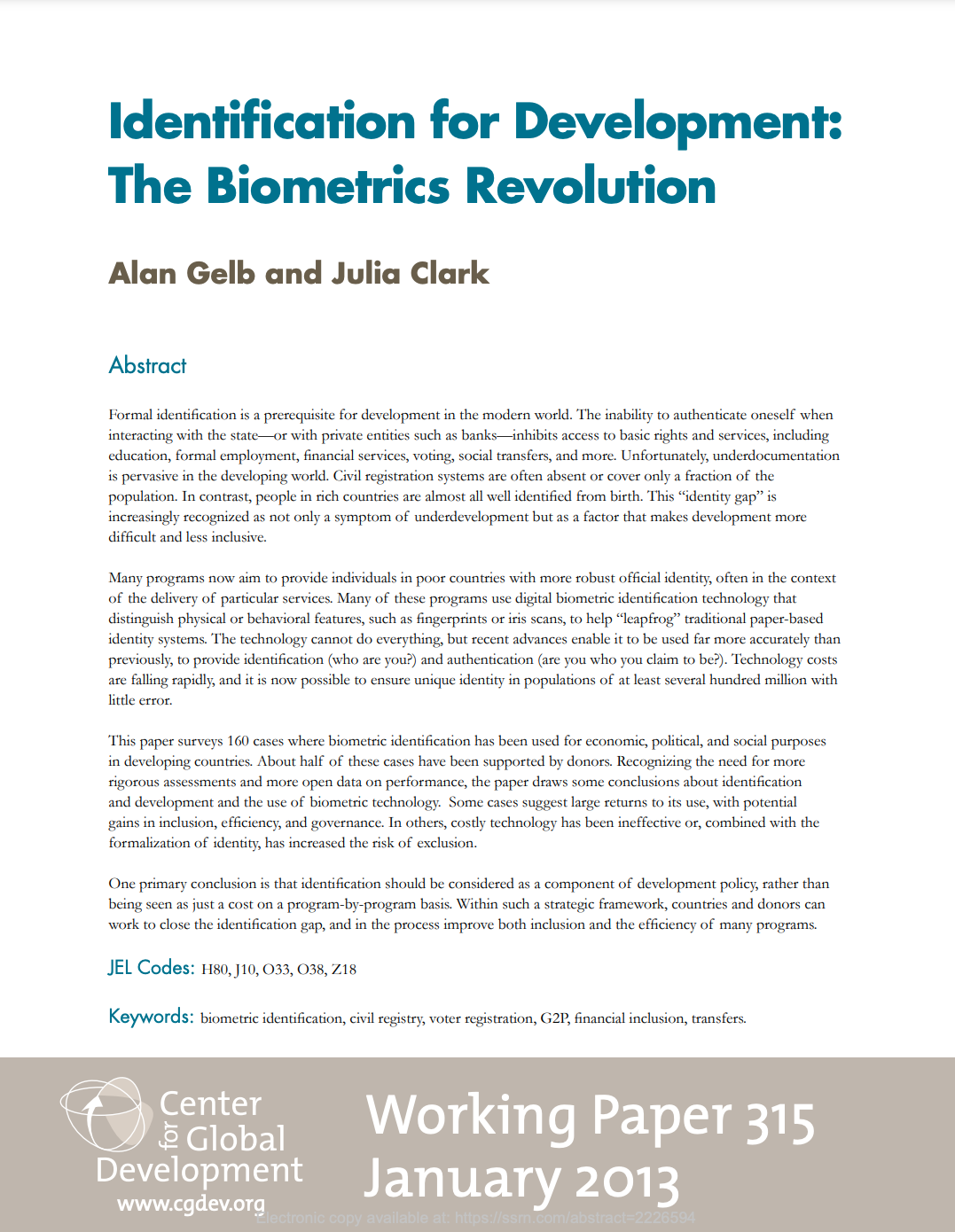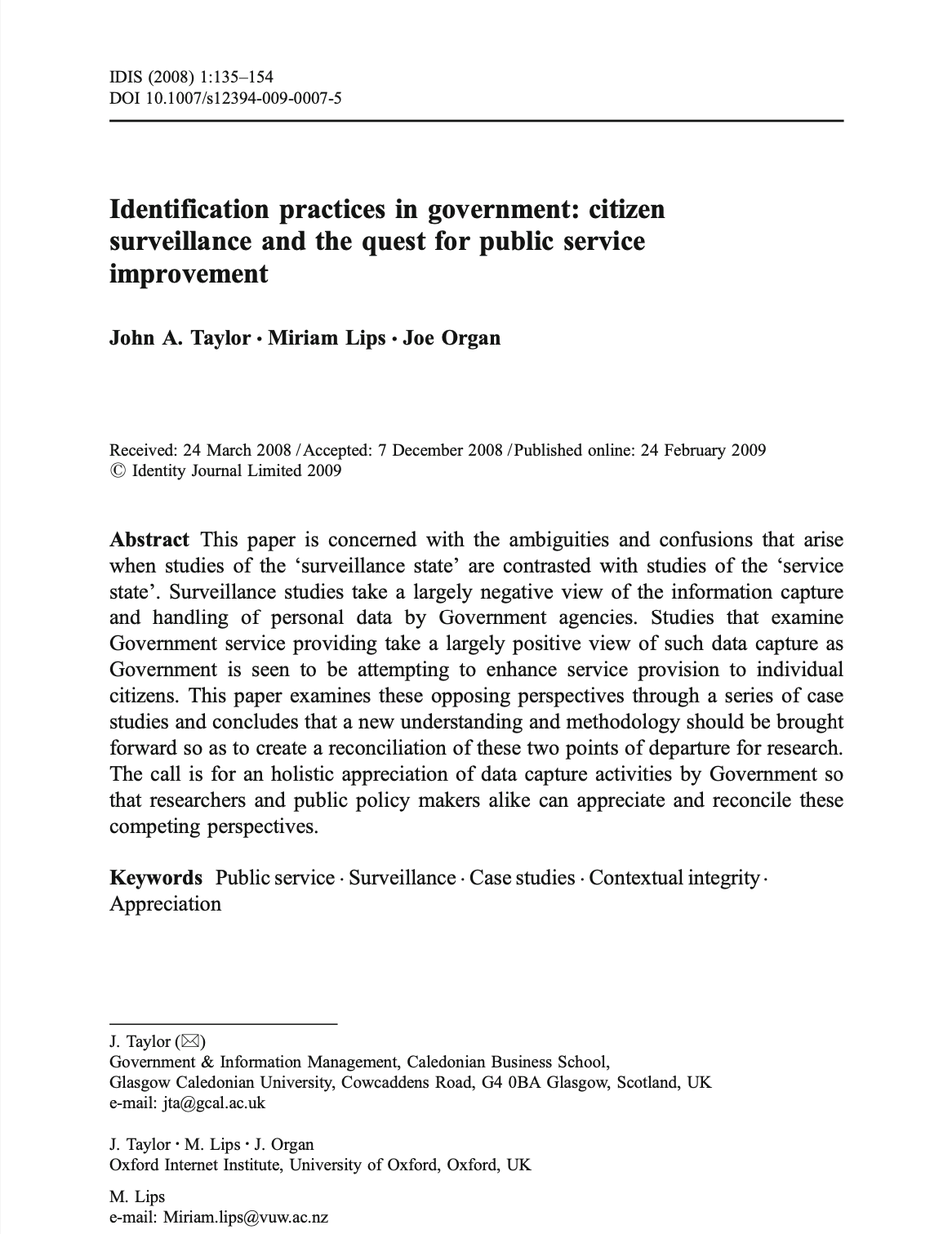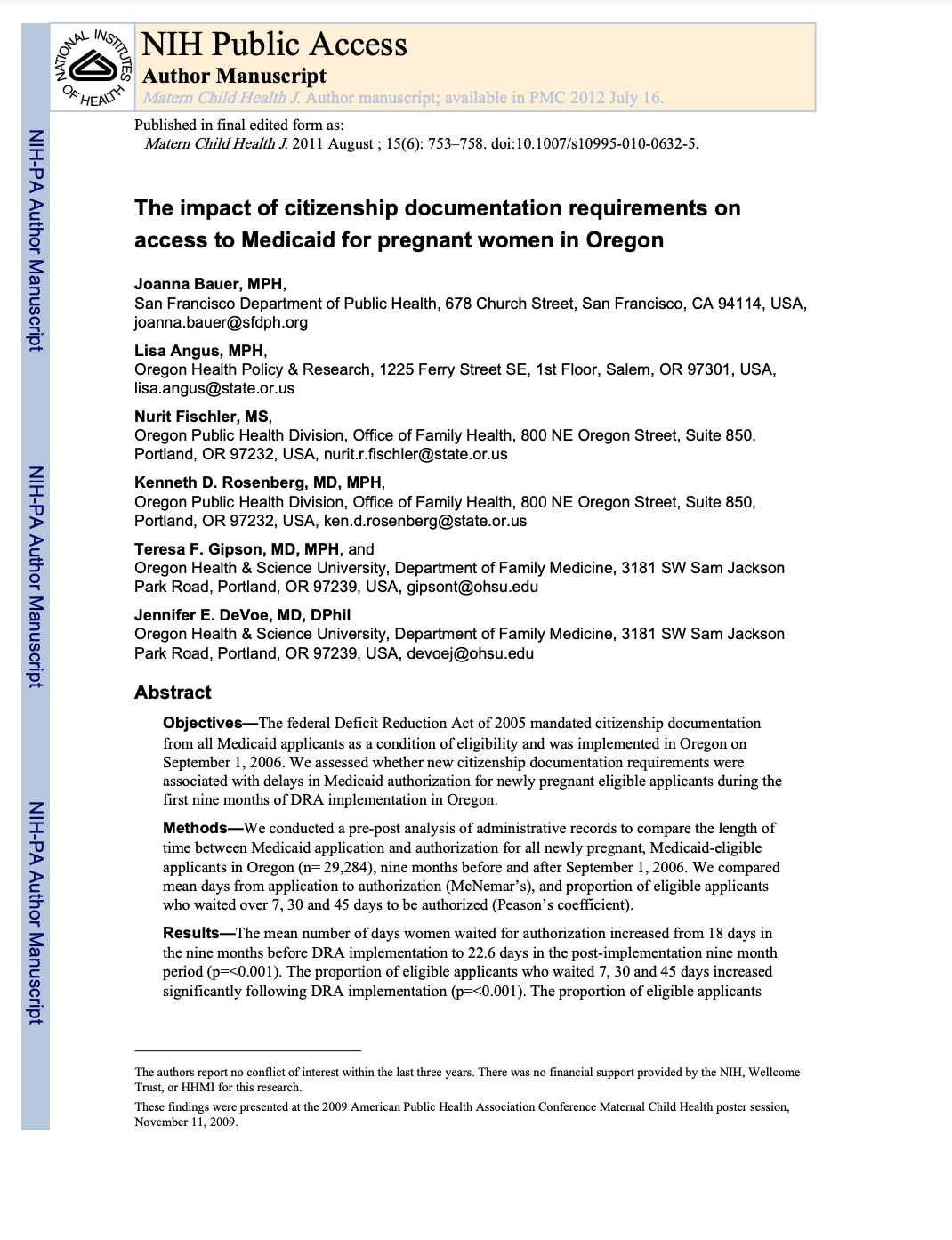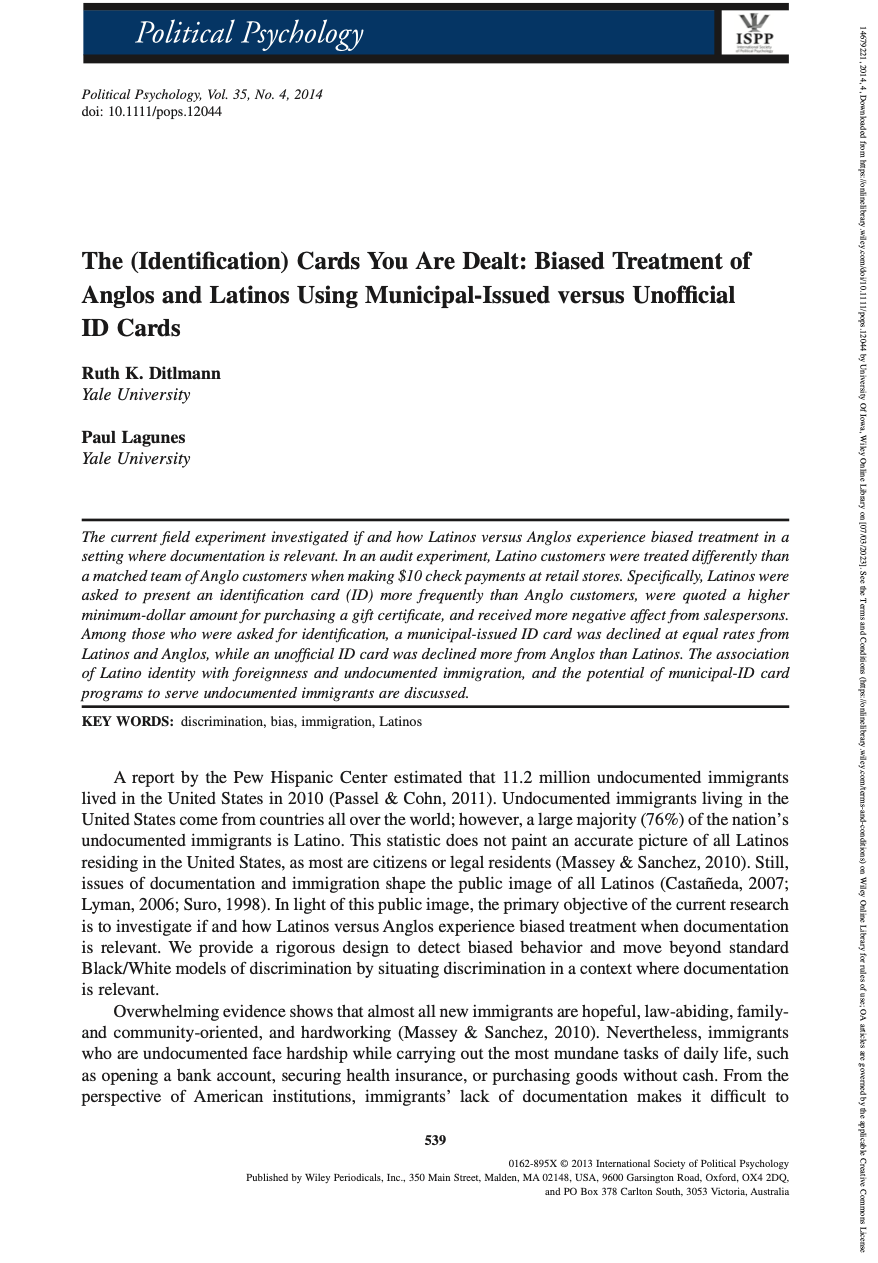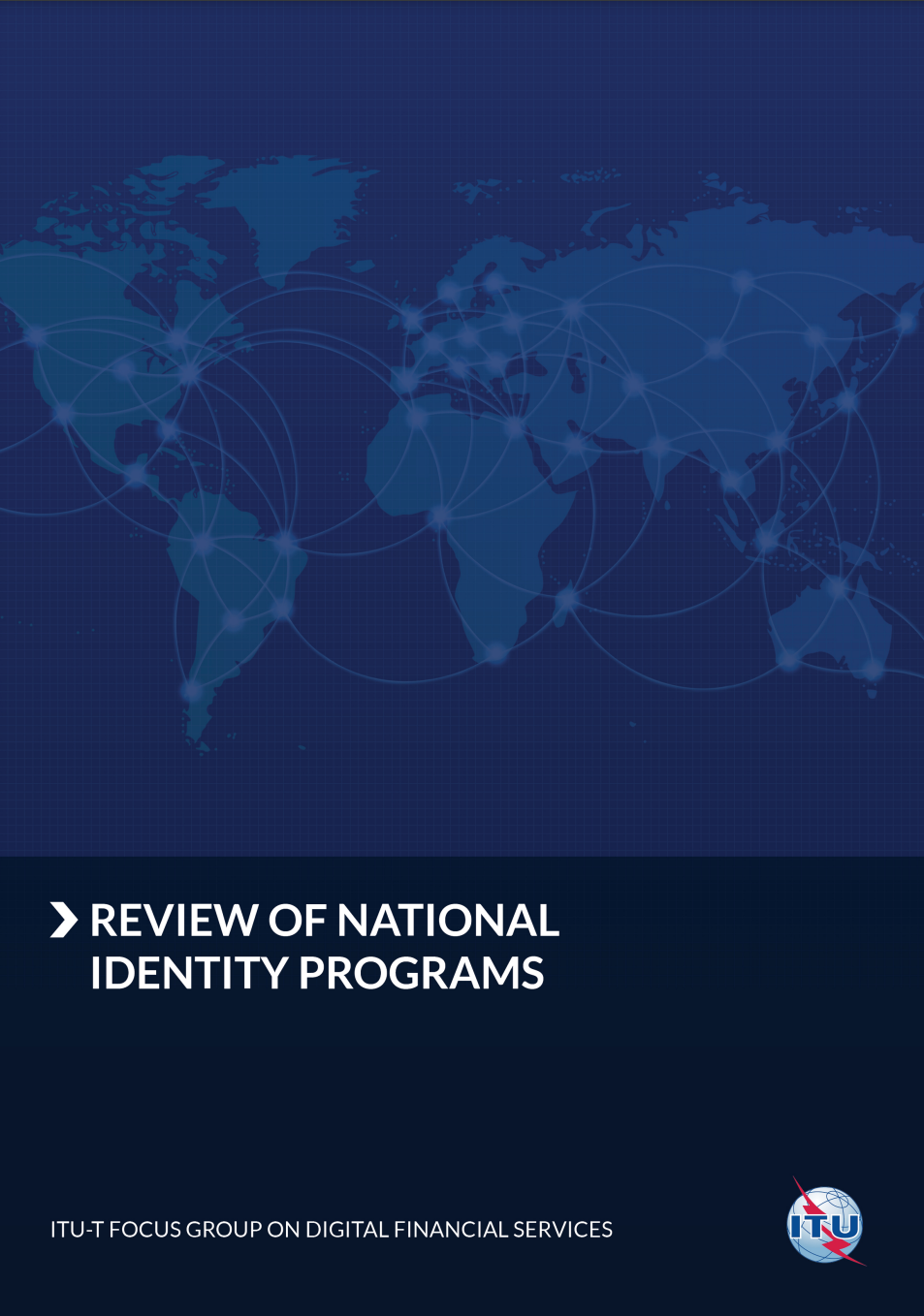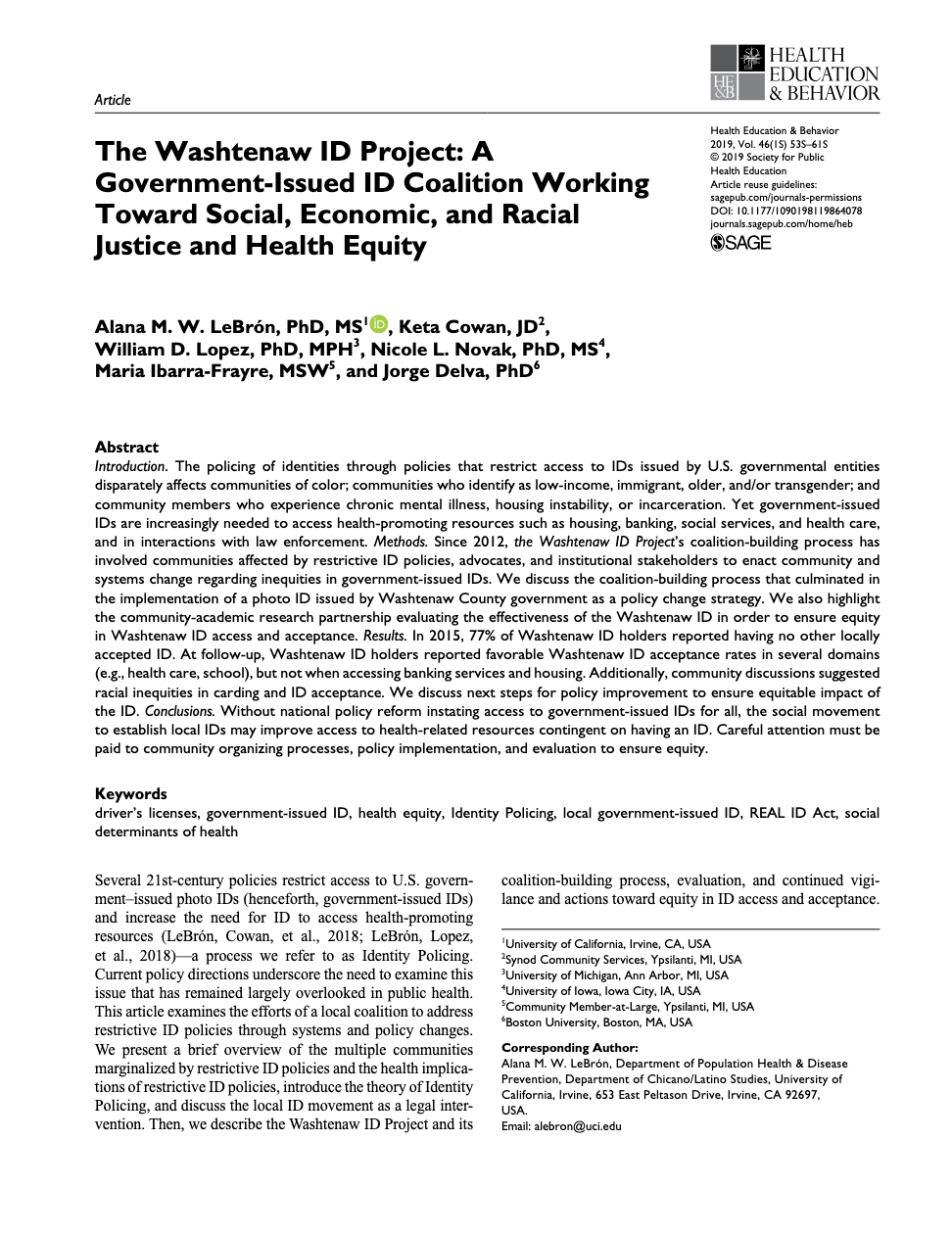Research
Works Cited
Anderson, L., Biscaye, P., Coney, S., Ho, E., Hutchinson, B. W., Neidhardt, M., & Reynolds, T. (2016). Review of national identity programs. International Telecommunications Union. https://www.itu.int/en/ITU-T/focusgroups/dfs/Documents/09_2016/Review%20of%20National%20Identity%20Programs.pdf
Bauer, J., Angus, L., Fischler, N., Rosenberg, K. D., Gipson, T. F., & Devoe, J. (2011). The impact of citizenship documentation requirements on access to medicaid for pregnant women in Oregon. Maternal and child health journal, 15(6), 753–758. https://doi.org/10.1007/s10995-010-0632-5
The Center for Popular Democracy. “Building Identity: A Toolkit for Designing and Implementing a Successful Municipal ID Program,” November 11, 2015. https://www.populardemocracy.org/news/publications/building-identity-toolkit-designing-and-implementing-successful-municipal-id.
Ditlmann, R. K., & Lagunes, P. F. (2014). The (Identification) Cards You Are Dealt: Biased Treatment of Anglos and Latinos Using Municipal-Issued versus Unofficial ID Cards. 35(4), 539–555. https://doi.org/10.7916/D89W0MVF
Hussey, Hannah. “Expanding ID Card Access for LGBT Homeless Youth.” Center for American Progress (blog), October 1, 2015. https://www.americanprogress.org/article/expanding-id-card-access-for-lgbt-homeless-youth/.
Gelb, Alan and Clark, Julia, Identification for Development: The Biometrics Revolution (January 28, 2013). Center for Global Development Working Paper No. 315, Available at SSRN: https://ssrn.com/abstract=2226594 or http://dx.doi.org/10.2139/ssrn.2226594
Gaetz, Stephen. “The Struggle to End Homelessness in Canada: How We Created the Crisis, and How We Can End It.” Open Health Services and Policy Journal 3 (2010): 21–26.
Hussey, Hannah. “Expanding ID Card Access for LGBT Homeless Youth.” Center for American Progress (blog), October 1, 2015. https://www.americanprogress.org/article/expanding-id-card-access-for-lgbt-homeless-youth/.
Kimball, D., & Anthony, J. (2018, July 26). Photo ID Implementation in Missouri Counties. MIT Election Data + Science Lab. https://electionlab.mit.edu/articles/photo-id-implementation-missouri-counties
Kopec, A., & Cowper-Smith, Y. (2016). Guelph Wellington Taskforce for Poverty Elimination: Avenues for creating an ID Bank. Guelph, ON: Community Engaged Scholarship Institute. https://atrium.lib.uoguelph.ca/xmlui/handle/10214/8902
LeBrón, Alana M. W., William D. Lopez, Keta Cowan, Nicole L. Novak, Olivia Temrowski, Maria Ibarra-Frayre, and Jorge Delva. “Restrictive ID Policies: Implications for Health Equity.” Journal of Immigrant and Minority Health 20, no. 2 (2018): 255–60. https://doi.org/10.1007/s10903-017-0579-3.
LeBrón, A. M. W., Cowan, K., Lopez, W. D., Novak, N. L., Ibarra-Frayre, M., & Delva, J. (2019). The Washtenaw ID Project: A Government-Issued ID Coalition Working Toward Social, Economic, and Racial Justice and Health Equity. Health education & behavior : the official publication of the Society for Public Health Education, 46(1_suppl), 53S–61S. https://doi.org/10.1177/1090198119864078
Movement Advancement Project. November 2022. The ID Divide: How Barriers to ID Impact Different Communities and Affect Us All. http://www.mapresearch.org/id-documents-report
O’Grady, Bill, Gaetz, Stephen, & Buccieri, Kristy, (2011). Can I See Your ID? The Policing of Youth Homelessness in Toronto. (Toronto: JFCY & Homeless Hub). https://homelesshub.ca/sites/default/files/CanISeeYourID_nov9.pdf
Sanders, C., Burnett, K., Lam, S., Hassan, M., & Skinner, K. (2020). "You Need ID to Get ID": A Scoping Review of Personal Identification as a Barrier to and Facilitator of the Social Determinants of Health in North America. International journal of environmental research and public health, 17(12), 4227. https://doi.org/10.3390/ijerph17124227
Taylor, J., Lips, M. & Organ, J. Identification practices in government: citizen surveillance and the quest for public service improvement. IDIS 1, 135–154 (2008). https://doi.org/10.1007/s12394-009-0007-5


